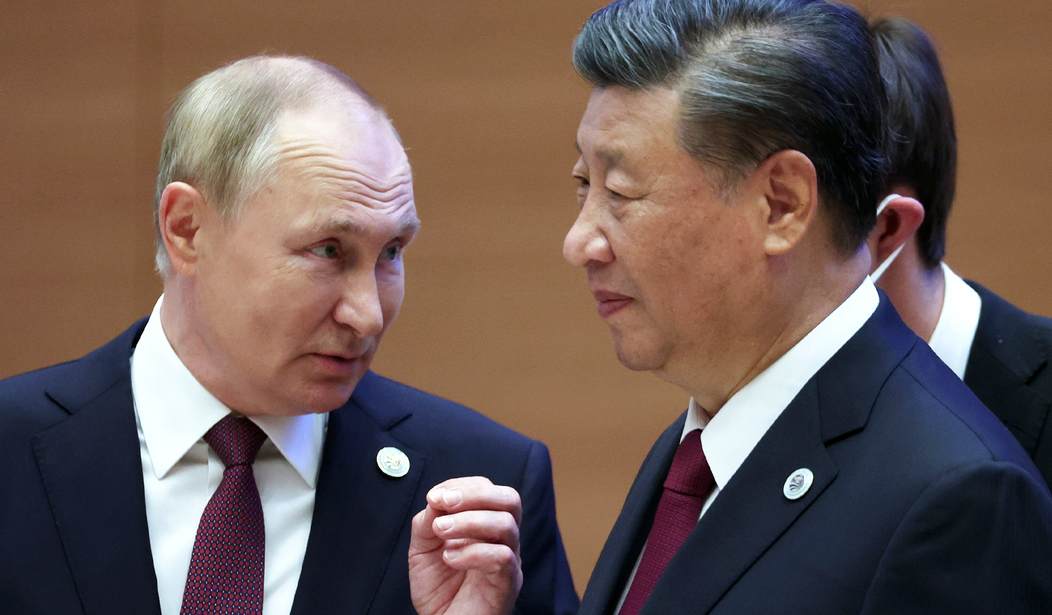The past year or more has seen China’s position on the world stage change quite a bit. The nation’s increasingly aggressive stance toward Taiwan and the rapid expansion of its military and economic influence across the Pacific has left many western nations on edge. And, of course, China’s continued support of Russia during the invasion of Ukraine puts them at odds with all of NATO and the rest of our allies. That’s why it was rather surprising to see German Chancellor Olaf Scholz flying to Beijing this week to meet with Xi Jinping. Scholz clearly wanted to talk about renewed trade deals and economic partnerships with the Chinese, but he couldn’t avoid bringing up Ukraine and the need to end the ongoing war there. Even more surprising was Xi Jinping’s reported decision to agree with him and call for peace as well. Or did he?
German Chancellor Olaf Scholz met with Chinese President Xi Jinping in Beijing on Friday for a one-day visit that has drawn criticism over China’s tacit support for Russia in its war on Ukraine and lingering controversies over economic ties and human rights issues.
In his opening remarks, Scholz referred directly to the conflict that has created millions of refugees and upended world food and energy markets, saying, “We come together at a time of great tension,” according to German news agency DPA.
“In particular, I want to highlight the Russian war against Ukraine, which poses many problems for our rules-based world order,” Scholz was quoted as saying.
Scholz also touched on global hunger, climate change and developing world debt as “important issues,” DPA reported.
We’ll get to Germany’s position in all of this in a moment, but the major question is whether or not we’re seeing a shift in China’s position regarding Ukraine. Some of the headlines relating to this meeting definitely seemed to suggest that China is now pushing for an end to the conflict, but Xi’s specific statement seems a lot more vague.
What he actually said was, “As influential powers, China and Germany should work together in times of change and chaos to make more contributions to world peace and development.”
The phrase “times of change and chaos” might be a reference to Ukraine, but it could just as easily be a reference to Taiwan’s stubborn streak of independence and open cooperation with the United States. Similarly, “world peace and development” is one of those gauzy, generic things that world leaders regularly say. That’s a far cry from Xi Jinping specifically taking the stage and telling Vladimir Putin that he needs to pull out of Ukraine and send his troops home. I think people may be reading far too much into this.
As far as Germany goes, Scholz appears to be ready to weaken the western alliance against Russia in the interest of bolstering his country’s economic situation. He did call out the Russian invasion as having “posed many problems.” But notice that he didn’t travel to Beijing with a group of German elected officials and diplomats. He brought with him a dozen major German business leaders, including the heads of Volkswagen, BMW, BASF, Bayer, and Deutsche Bank.
This trip was intended to expand Germany’s economic portfolio and nothing more. That’s obviously understandable because bolstering the German economy is part of the job that Scholz signed up for. But he’s also clearly not planning to hold China accountable for its ongoing support of Vladimir Putin, to say nothing of the ongoing wave of human rights abuses committed by the Chinese Communist Party.
I’ll be quite surprised if this new engagement between Germany and China winds up moving the needle substantially in Ukraine. If anything, the position of NATO and its allies may be a bit weaker this morning than it was yesterday.








Join the conversation as a VIP Member